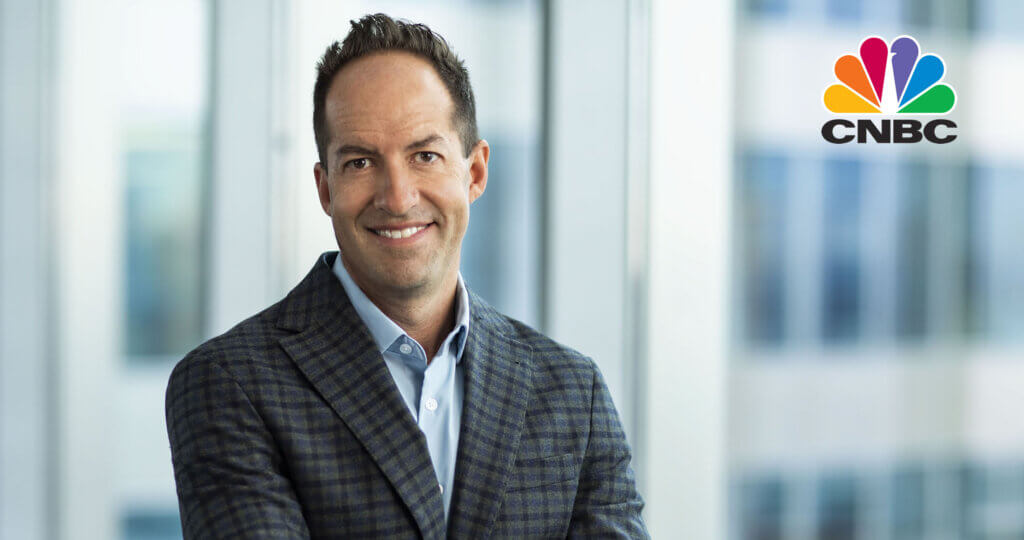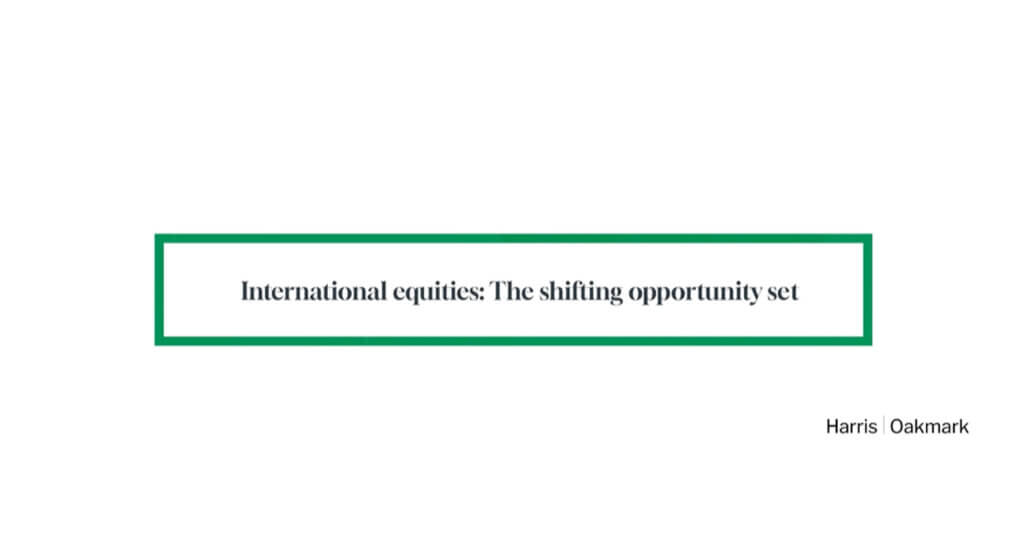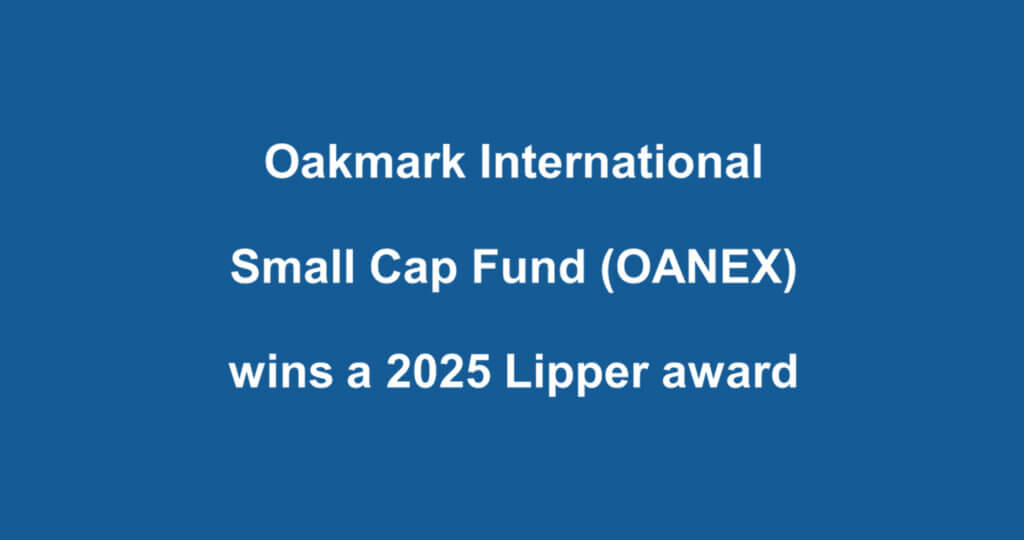Fellow Shareholders,
The first quarter of 2011 was once again marked both by global equity market volatility and uncertainty driven largely by macro factors. Despite this, both the Oakmark International Fund and International Small Cap Fund earned positive returns for the quarter, though both Funds slightly lagged their peers and respective indices. (View performance for The Oakmark Funds here.)
Macro Events/Micro Opportunity
The new year brought a degree of optimism as a result of strong economic growth in the emerging markets, as well as recovery in the developed world. Indeed, the world’s largest economy, the USA, began to perk up as much of the uncertainty surrounding economic and tax policy vanished after the midterm elections and a two-year political deal on tax policy was approved by Congress. Europe and Japan were more of a mixed bag. Parts of southern Europe, the U.K. and Ireland had to deal with their own fiscal messes, while Germany and Scandinavia experienced robust economic conditions. Even Japan, the world’s third-largest economy, seemed to be bouncing off the bottom with a modest economic recovery accelerating as we moved deeper into 2011.
While the quarter started on an optimistic note, macro storms soon rolled in. First, political instability in the Middle East, instigated by the “Facebook” generation, hit numerous countries, toppling regimes in Egypt and Tunisia. In other areas like Libya, Bahrain and even Syria, the leaders appear to be on the ropes. Meanwhile, Saudi Arabia, the most strategically important nation, has experienced only minor disquiet, though there are fears that this too is a nation that could succumb to disorder despite what appears to be widespread internal respect for its king. Keep in mind that the world consumes around 85 million barrels of oil a day, of which 8 million to 10 million are produced by Saudi Arabia.
In March, just as events in Libya accelerated, Japan was hit by a double-barreled natural disaster. We are all aware by now of the death and destruction caused by the monstrous earthquake and the tsunami that followed. Rob Taylor, co-manager of Oakmark International, and analyst Eric Liu were in Japan at the time and luckily both made it back safe and sound. The problems with the Fukushima nuclear plant and the destruction of some infrastructure have meant a fairly major disruption to the world’s global supply chain, as many key components for the IT and auto industries are sourced from Japan.
So just when things were fairly positive for the globe, here comes a powerful 1-2 punch. This is already on top of U.S. and European PIIGS (Portugal, Italy, Ireland, Greece and Spain) fiscal fears.
How can we as investors cope?
First, we must accept the fact that periods of long-term macro tranquility are actually quite rare. I started in the investment business in 1986. In 1987 there was a global stock market crash. In fact, the Hong Kong market was hit so hard that it was closed for days before it regrouped and reopened. In the early 90s there was the first Gulf War, followed by Latin America’s “Tequila Crisis” in 1994. The next couple of years were fairly quiet, but then came the Asian Crisis in 1997, followed by a full-blown panic in most emerging markets by mid-1998. Asia began to slowly recover in 1999, but then in 2000, the tech bubble popped and in 2001 came the terrorist attacks of 9/11.
Incidentally, despite all of the macro disturbances in the 1990s, the MSCI World index managed an average annual return of 12% in that decade.
Second, we believe that one needs to stay focused on the micro and company valuation.
It is the MICRO that counts!
We have a consistent approach to the integration of macro events: Determine how the event impacts a specific company’s value over the long term, if at all, and make adjustments to specific business valuations, if needed. Recall that we value a business based on the present value of ALL future cash flows. Because the stock market reacts mostly to short-term information flows, we seek to exploit market inefficiency.
As an example, because Japanese stocks have been extremely low-priced (pre-disaster) and the quality of these businesses has been improving, we have been increasing our weight in Japanese stocks in both strategies. Pre-disaster, on average, Japanese companies were trading at around 1x book value, whereas the rest of the world was over 2x book. Post-disaster, Japanese share prices are selling at even lower valuations. We acknowledge that in the short term, the disaster might have a negative impact on earnings and cash generation of certain Japanese companies. However, we do not think, at this stage, that there has been any real, significant, long-term or structural value destruction of those Japanese companies in which we are invested. As a result, we sought to take advantage of Mr. Market’s short-termism by increasing our exposure to many of our Japanese holdings.
As we continue through 2011, we remain optimistic about our portfolios based on muted equity-market valuations and a continued belief that, despite the current macroeconomic disturbances, there exists a favorable atmosphere for corporate profitability. We continue to be thankful for your continued confidence and support.
Past Performance is no guarantee of future results. The performance data quoted represents past performance. Current performance may be lower or higher than the performance data quoted. The investment return and principal value vary so that an investor’s shares when redeemed may be worth more or less than the original cost. The performance of the Funds does not reflect the 2% redemption fee imposed on shares redeemed within 90 days of purchase. To obtain the most recent month-end performance data, view it here.
The MSCI World Index (Net) is a free float-adjusted market capitalization weighted index that is designed to measure the global equity market performance of developed markets. This benchmark calculates reinvested dividends net of withholding taxes using Luxembourg tax rates. This index is unmanaged and investors cannot invest directly in this index.
Investing in foreign securities presents risks that in some way may be greater than U.S. investments. Those risks include: currency fluctuation; different regulation, accounting standards, trading practices and levels of available information; generally higher transaction costs; and political risks.
The stocks of smaller companies often involve more risk than the stocks of larger companies. Stocks of small companies tend to be more volatile and have a smaller public market than stocks of larger companies. Small companies may have a shorter history of operations than larger companies, may not have as great an ability to raise additional capital and may have a less diversified product line, making them more susceptible to market pressure.
The discussion of the Funds’ investments and investment strategy (including current investment themes, the portfolio managers’ research and investment process, and portfolio characteristics) represents the Funds’ investments and the views of the portfolio managers and Harris Associates L.P., the Funds’ investment adviser, at the time of this letter, and are subject to change without notice.







